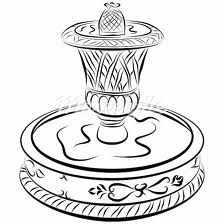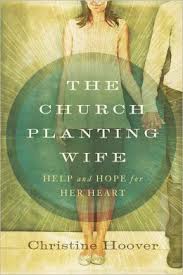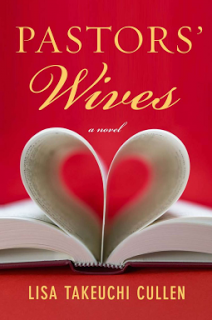Abstract
Does history hold a bias against women? Members of the radical feminist movement seem to think so. Radical feminism has had incredibly destructive effects on marriage and the family—and its influence has also been felt on the church. Evangelical feminism teaches an egalitarian view of marriage and roles in the church, to the point where passages that clearly teach male headship are reinterpreted, explained away, or ignored altogether. As a result, many men are abdicating or being forced out of their God-given roles as heads of their households and as leaders in the church. The negative effects of this kind of postmodern thinking have led to serious attacks on the authority of God’s Word.
Introduction
Where does true freedom come from? Is it found in the casting off of God-given roles and responsibilities in pursuit of supposedly higher ideals? That seems to be the conclusion of feminism. The radical feminist movement has caused incredible damage to marriage and the family in our culture. Like other prominent postmodern ideas of our day, feminism professes to be about “liberation.” It looks to liberate women from the supposed “shackles” of being wives and mothers. Furthermore, feminism rests on the assumption that men have written history and that patriarchal societies have made choices in such a way as to subordinate and exclude women.
It is important to note that the word feminism in this series does not include most of what is commonly known as “women’s suffrage,” or first-wave feminism. That is, this author is not challenging women’s right to vote or other opportunities afforded women during the late nineteenth and early twentieth centuries. However, second-wave feminism, which began in the 1960s and ran until the 1990s, and third-wave feminism, which began in the 1990s, have both caused incredible damage to the institution of marriage, the family, and biblical gender roles.
Two prominent feminists, Sandra M. Gilbert, professor emerita of English at University of California–Davis, and Susan Gubar, professor emerita of English and women’s studies at Indiana University, made what is a common argument from feminists about male authority:
For if the author/father is owner of his text and of his reader’s attention, he is also, of course, owner/possessor of the subjects of his text, that is to say of those figures, scenes, and events—those brain children—he has both incarnated in black and white and “bound” in cloth or leather. Thus, because he is an
author, a “man of letters” is simultaneously, like his divine counterpart, a father, a master or ruler, and an owner: the spiritual type of a patriarch, as we understand that term in Western society.
1
Essentially, Gilbert and Gubar, and many others, argue that because of the masculine roots of even the word author and because of the patriarchal structure of many cultures, the voices of women have suffered or gone unheard. Other well-known feminists have claimed that women are seen as “Other” in society, as something feared by men. Such a mindset has done nothing to strengthen marriage and the family.
More recently, feminist scholars have realized the error of pitting men against women. But rather than embrace the biblical guidelines for marriage and leadership, these scholars have advocated a general wiping away of gender distinctions, thus removing the uniqueness inherent in being a woman or a man.
David Noebel, founder of Summit Ministries, sums up well the devastating effects of radical feminism on society as a whole:
For radical feminists, the ultimate goal became women’s equality with men, which means, among other things, total sexual freedom. To bring this about, the strategic theory proclaimed children a burden and marriage a form of slavery, counterproductive to a woman’s self-fulfillment. Abortion was declared a political right and women’s only means for sexual equality with men—since men can engage in sexual intercourse without the consequences of bearing children, women must have the same freedom and political right.2
The effects of feminism run deep—and the church has not been immune. While the church has not embraced feminist ideals as quickly as the rest of the culture, feminism has not been without an influence on the Christian community. This ideology has even changed the way many in the church view Scripture. While many feminists in the secular world characterize the Bible as oppressive to women, many evangelical feminists (i.e., professing Christians who believe feminist ideals are compatible with Scripture) claim that the passages on male headship are simply misunderstood.
As the feminist movement and feminist theory have risen in prominence, its influence on the church can be seen more clearly. The evangelical feminist movement, which will be the subject of this article, has led to confusion and a loss of biblical authority in some areas of thinking in many churches.
Thanks to evangelical feminism, passages of Scripture on male headship in marriage are reinterpreted, explained away, or ignored altogether, and men are abdicating or being forced out of their God-given roles as heads of their households. Many churches have chosen to relegate Scripture that teaches that it is men who are to reside in leadership over the church to a place of “cultural” relevance—teachings that are outdated today because society has somehow reached a state of enlightenment. The negative effects of this kind of postmodern thinking have led to serious attacks on the authority of Scripture and have weakened the relationships and structures in the church and in Christian families as a whole.
Evangelical Feminism and Biblical Authority
As with the other postmodern ideas this series has explored, feminist theory operates primarily on assumptions and personal agenda. Tremper Longman, professor of biblical studies at Westmont College, and Peter Enns, formerly the senior fellow of biblical studies at BioLogos—both of whom do not hold to a literal reading of Genesis—explain feminist interpretation of Scripture:
By its very nature, feminist interpretation is pluralistic; that is, there are no right or wrong readings. Hence, feminist critics may advocate different and often contradictory readings of the same text. Further, the starting point of feminist interpretation of the Bible is not the biblical text in its own right but rather the concerns of feminism.3
Does this sound familiar? The starting point is not Scripture, and “there are no right or wrong readings.” In other words, what drives feminist criticism is personal agenda. Longman and Enns outline what that agenda is:
Recognizing that in the history of civilization women have been marginalized and denied access to positions of authority and influence, feminist scholars seek to expose the strategies by which men have either justified their control over women or encouraged female complicity in their own subordination. In the particular case of the Bible, there is abundant evidence to show that the Bible was produced mainly by men for men.
3
Indeed, many in the feminist camp believe that history itself is inherently biased against women. Just as the Bible was supposedly written “by men for men,” so was history supposedly written by men to benefit men.
While there is some truth to the idea that history as we know it contains a certain amount of bias (after all, no one is truly without a bias), it does not logically follow that we can know nothing about history because of a historian’s bias. When reading an American history textbook, does the author’s bias prevent us from trusting that names, dates, and places are correct? Likely not, unless there is reasonable evidence that the author either does not know what he is talking about or is intentionally distorting facts to push an agenda. Such are the pitfalls of anything written by biased, sinful, fallible humans. With the Word of God, we can be sure that no such pitfalls are there, as the words are the words of God Himself, who is truth and who created maleand female. Nonetheless, the historical bias idea has filtered into the interpretations of many Christian leaders and Bible scholars, manifesting itself in a variety of forms.
One notable example concerns the use of masculine pronouns to describe God.
4 Paul R. Smith, an openly homosexual pastor, earned his master’s degree in theology from Midwestern Baptist Theological Seminary and now pastors Broadway Church in Kansas City, Missouri. In his book
Is It Okay to Call God “Mother”? Smith argues that the predominantly male pronouns used for God in Scripture are not the result of divine inspiration, but rather the result of “cultural influences.” He writes, “If we can recognize cultural influence in the early church practice of addressing one another with a holy kiss, why should we not also recognize cultural influence in the New Testament practice of addressing God with almost exclusively masculine imagery?”
5 In other words, Scripture’s use of masculine pronouns and mostly masculine imagery to describe God can be chalked up to male authors who wrote what was culturally popular—male descriptions of God. This idea is, of course, in direct conflict with
2 Timothy 3:16–17, which tells us that
all Scripture is breathed out by God.
Smith and others intentionally integrate feminine pronouns and language in reference to God the Father and God the Son. A movement began some years ago to replace masculine pronoun use for God in Scripture with feminine pronouns. Some denominations even embraced referring to God as “mother.” Randy Stinson, a dean at Southern Baptist Theological Seminary in Louisville, Kentucky, and senior fellow with the Council for Biblical Manhood and Womanhood, noted that the United Methodist Hymnal’s supplement,
The Faith We Sing (2000), “includes songs that address God as ‘Strong Mother’ and ‘Mothering God.’ In this same hymnal, not only are there songs referring to God as mother, but there is one song referring to the earth as mother.”
6 In other words, not only do the hymns sing of God as mother, but they interchangeably refer to God
and Earth as “mother.”
While it is clear from Scripture that God is Spirit (
John 4:24) and is therefore beyond the confines of physical gender, what is also clear is that Scripture intentionally avoids referring to God as “mother” in the same way that it refers to Him as “father,” “king,” and so on. As Wayne Grudem, a professor at Phoenix Seminary and an outspoken critic of evangelical feminism, rightfully notes, “we should not name God with names that the Bible never uses and actually avoids using. God’s name is valued and highly protected in Scripture.”
7The trouble with these anti-masculine language arguments is that they rely on the idea that the Bible must remain “culturally relevant.” But this line of thinking not only questions biblical authority—it has a tendency to dismiss it altogether. Like the new historicism (see part 4 of this series,
The Influence of Postmodernism, Part 4: New Historicism), the above arguments make culture the authority over Scripture, rather than God.
Evangelical Feminism and Power
Like
deconstruction and the
new historicism, feminist theory is also concerned with power and how that relates to the binary oppositions Jacques Derrida (the founder of deconstruction)
8 was concerned with. Indeed, the elements of deconstruction and the new historicism are present in feminist ideology, likely because Jacques Derrida, Michel Foucault, and other prominent postmodernists who have influenced many academics over the years all held post-structuralist viewpoints in their work.
Post-structuralism was a term applied to many of the French philosophers who rose to prominence in the 1960s and 1970s, including Derrida and Foucault. Their works shared some similar themes, including the idea that there is no fixed or intrinsic meanings in words and that binaries like male/female are nothing more than social constructs (i.e., an idea that has developed over time but cannot be ascertained from nature) meant to exercise power over people. These ideas are integral not only to feminist theory, but also to queer theory and gender studies.
Central to the power issue in evangelical feminism is biblical gender roles in marriage. The binary husband/wife is key here, because a feminist would see a social construction present in Scripture that makes the husband dominant and the wife oppressed. From the standpoint of a postmodernist, the biblical idea of male headship in the home is simply a power play.
There are two primary schools of thought in the debate over biblical gender roles: complementarian and egalitarian. In a basic sense, complementarians are those who agree that while men and women are equal before God in matters of salvation and human worth (
Galatians 3:28), God has given men in the church a special authority to teach and lead, and He has given husbands in the home a special authority and responsibility to lead their families (
Genesis 1–2;Ephesians 5:22–33).
9Egalitarians are those who believe that God has not necessarily set men apart as leaders, but has rather invited all people, men and women, to exercise equal authority in the church and home. This latter camp has embraced evangelical feminism in many ways, and the influence is apparent in how they read Scripture dealing with gender roles in the home and the church.
One of the most well-known proponents of the egalitarian view of Scripture is the organization Christians for Biblical Equality (C.B.E.). The organization’s president is Mimi Haddad, who earned a Ph.D. in historical theology from the University of Durham, England and who now teaches for multiple seminaries. The C.B.E. mission statement makes clear that they reject what the Bible has to say about gender roles:
CBE affirms and promotes the biblical truth that all believers—without regard to gender, ethnicity or class—must exercise their God-given gifts with equal authority and equal responsibility in church, home and world.10
Much of what Haddad and C.B.E. are promoting is not “biblical.” But by equivocating on the phrase biblical equality, C.B.E. creates a situation whereby those who dissent from an egalitarian reading of Scripture cannot voice their disagreement without seeming as though they reject “biblical equality.” This is yet another example of a postmodern language game—C.B.E. has redefined the terms so its definition will be more readily accepted by society, even though it no longer reflects what the Bible plainly says about equality.
In a move characteristic of many evangelical feminists, Haddad redefines the phrase
male headship, writing that husbands are only given “cultural authority” and that the Apostle Paul’s only mention of authority is in
1 Corinthians 7:3–7, a passage about the sexual relationship of a husband and wife. She concludes, “for Paul, male headship is primarily about love, demonstrated by sacrifice and an abandonment of cultural authority.”
11 The initial problem here is Haddad’s implication that authority and love cannot operate together in a marriage, that it is somehow not “biblical” for a husband to exercise authority in a godly manner over his family. Furthermore, her statement seems to imply that those who hold a complementarian view of marriage lack love and sacrifice, or at the very least are deficient in those areas because of authority. These are bold claims to make considering their lack of biblical support.
Dr. Gilbert Bilezikian, founder of Willow Creek Community Church and professor emeritus at Wheaton College, also has written for C.B.E. Bilezikian argues, “There is not a hint, not even a whisper about anything like a hierarchical order existing between man and woman in the creation account of Genesis.”
12 This, despite that in the creation account, Adam is made first; he is tasked with naming the animals; he names Eve (
Genesis 2:23); he is given the instructions regarding the tree of the knowledge of good and evil; and his name is called when both he and Eve sinned. Additionally, God creates Eve to be Adam’s “helper” (
Genesis 2:20). The pattern of male headship is clearly evident in the “very good” creation prior to the Fall.
Indeed, male headship is also taught in the New Testament, after the Fall. The Apostle Paul explains how the godly marriage relationship should look in Ephesians 5:
Wives, submit to your own husbands, as to the Lord. For the husband is head of the wife, as also Christ is head of the church; and He is the Savior of the body. Therefore, just as the church is subject to Christ, so let the wives be to their own husbands in everything. Husbands, love your wives, just as Christ also loved the church and gave Himself for her . . . So husbands ought to love their own wives as their own bodies; he who loves his wife loves himself. (Ephesians 5:22–25, 28)
Taken at face value, Paul seems to be teaching that husbands are to lead their wives, just as Christ leads the church.
But Bilezikian, like many who have been influenced by evangelical feminist thinking, argues that words such as
head or
helper in Scripture are misunderstood. Bilezikian says of headship, “
Headis never given the meaning of authority, boss or leader. It describes the servant function of provider of life, growth and development.”
13 In one sense, Bilezikian has it right—the husband absolutely should desire to aid his wife and children in their spiritual growth. In fact,
Ephesians 5:28–33 commands husbands to love their wives as they love themselves and as Christ loved the church (i.e., to the point of being willing to die for her).
In relation to Genesis and Eve’s role as Adam’s “helper,” Bilezikian writes, “In the language of the Old Testament, a ‘helper’ is one who rescues others in situations of need. This designation is often attributed to God as our rescuer. The word denotes not domesticity or subordination but competency and superior strength.”
13 While Bilezikian’s claim may sound plausible, the textual evidence simply does not support it. What’s more, he has not leveled the field for men and women; he has sent it to a far extreme by implying that women are defined by “competency and superior strength.” There is no question that women are competent, strong individuals. Every marriage is made up of a team, a husband and wife who are both competent and strong in their own areas. That fact, however, does not negate what God’s Word has to say about who is charged with leading the family. Every “team” needs a leader, and Scripture clearly places the responsibility for leadership on the husband, both before and after the Fall.
The main concern in the husband/wife relationship for evangelical feminists (and feminism in general) is power. Radical feminism has done the work attaching enough negative connotations to the word submission that it is readily avoided in most circles, including Christian ones. But feminism’s view that there is no intrinsic meaning in words renders titles like “husband” and “wife” virtually meaningless, thereby making the redistribution of power in the home much easier. The influence of this idea that words cannot be taken at face value is reflected in the hermeneutic of scholars like those at C.B.E.
Where Does Evangelical Feminism Lead?
Most evangelical feminists would profess to believe in the authority and inerrancy of Scripture, setting them apart from many other forms of feminism. However, their method of interpreting and applying Scripture leaves something to be desired. What is at the heart of a reluctance or even outright refusal to refer to God as “he” and “father”? What drives the redefinition and dismissal of passages of Scripture that promote male headship in marriage and leadership in the church? Grudem concludes, “At the foundation of egalitarianism is a dislike and a rejection of anything uniquely masculine.”
14The poor state of marriage and the family today is an outworking of sin. With the Fall came a marring of relationships, and one of the consequences of the Curse in Genesis 3 is the wife’s temptation to usurp her husband’s authority as well as the husband’s temptation to exercise domineering, ungodly authority over his wife or his temptation to abdicate his role altogether. Radical feminism, evangelical feminism, and other branches of the theory that deny the authority of God’s Word are all attempts to justify actions that are not God’s ideal for men and women.
The world is quickly moving toward a complete rejection of gender differences, with perhaps the exception of superficial biological differences, in favor of a society of men and women who are simply sexual “beings” that are not to be distinguished by gender. And certainly one of the defining issues of this generation is the acceptance of homosexual behavior and same-sex “marriage.” (These will be discussed in the final two parts of this series.) As the secular culture accepts these ideas, churches that are not founded on the authority of God’s Word will undoubtedly not be far behind.
While evangelical feminists do not necessarily promote or condone the above views of gender and homosexual conduct (unlike many of their more radical counterparts), their hermeneutic ultimately leads to those conclusions. After all, if male headship or masculine language in Scripture can be attributed to cultural influences, why should prohibitions against homosexual behavior be treated any differently? And if there are truly no distinctions between men and women in passages on headship in the home and leadership in the church, why should there be gender distinctions in general? What does it mean to be distinctly masculine or distinctly feminine in the church, if the examples in Scripture are either reinterpreted or simply are not to be applied to specific genders? Indeed, pro-homosexual Bible scholars are already applying these methods of interpretation in an attempt to justify homosexual behavior.
The road to true freedom comes not from seeking validity through position or power in marriage or the church. True freedom comes by obedience to Christ, which means honoring God’s Word in every area, including biblical gender roles. Scholars like those at Christians for Biblical Equality, who argue for an egalitarian view of Scripture, may be well meaning and gifted individuals who love the Lord. But they are severely misguided in their teachings. As brothers and sisters in Christ, we have a responsibility to humbly correct error in the church, “speaking the truth in love” (
Ephesians 4:15). That is what we at Answers in Genesis try to practice, and we urge you to do the same.
Footnotes
- Sandra M. Gilbert and Susan Gubar, The Madwoman in the Attic: The Woman Writer and the Nineteenth-Century Literary Imagination (New Haven, Connecticut: Yale University Press, 1979), p. 7. Back
- David Noebel, Understanding the Times (Manitou Springs, Colorado: Summit Press, 2006), p. 350. Back
- Dictionary of the Old Testament, ed. Tremper Longman III and Peter Enns (Downers Grove, Illinois: InterVarsity Press, 2008), s.v. “feminist interpretation.” Back (1) Back (2)
- Randy L. Stinson offers a thorough critique of the movement to replace masculine references to God with feminine ones in his article, “Our Mother Who Art in Heaven: A Brief Overview and Critique of Evangelical Feminists and the Use of Feminine God-Language,”Journal of Biblical Manhood and Womanhood 8, no. 2 (2003): 21–31. Back
- Paul R. Smith, Is It Okay to Call God “Mother”? Considering the Feminine Face of God(Peabody, Massachusetts: Hendrickson, 1993), p. 49. Back
- Randy Stinson, “Our Mother Who Art in Heaven . . . ”: 21–31. Back
- “Our Mission and History,” Christians for Biblical Equality, www.cbeinternational.org/?q=content/our-mission-and-history. Back
- The Influence of Postmodernism, Part 3: Deconstruction Back
- Wayne Grudem, Evangelical Feminism and Biblical Truth (Sisters, Oregon: Multnomah, 2004), p. 510. Back
- For a fuller look at the complementarian position on male headship, see Steve Golden, “Feedback: Is Male Headship a “Curse”?” Answers in Genesis, http://www.answersingenesis.org/articles/2012/08/31/feedback-male-headship-curse. Back
- Mimi Haddad, “What is Male Headship?” Christians for Biblical Equality, www.cbeinternational.org/?q=content/what-male-headship. Back
- Gilbert Bilezikian, “A Challenge for Proponents of Female Submission to Prove Their Case from the Bible,” Christians for Biblical Equality, www.cbeinternational.org/?q=content/challenge-proponents-female-submission-prove-their-case-bible. Back
- Gilbert Bilezikian, “I Believe in Male Headship,” Christians for Biblical Equality, www.cbeinternational.org/?q=content/i-believe-male-headship. Back (1) Back (2)
- Wayne Grudem, Evangelical Feminism: A New Path to Liberalism? (Wheaton, Illinois: Crossway, 2006), p. 223. Back
 On this day around the world Christians remember that tense, sensitive time Jesus spent with his disciples in the upper room and the last supper he shared with them. Many refer to this day as “Maundy Thursday.”
On this day around the world Christians remember that tense, sensitive time Jesus spent with his disciples in the upper room and the last supper he shared with them. Many refer to this day as “Maundy Thursday.”







